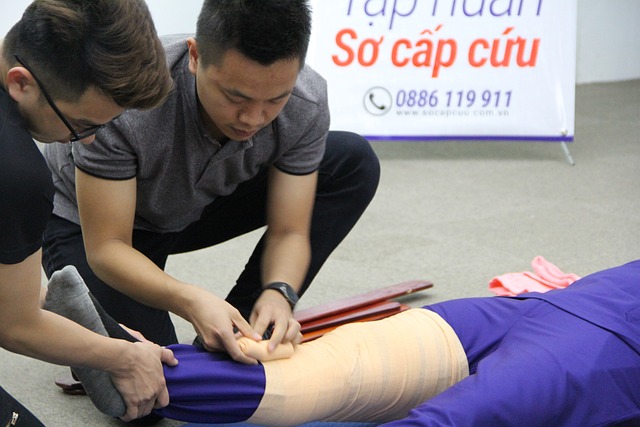First aid training is more than just a useful skill; it’s an essential life skill that can make a significant difference in emergencies, accidents, and everyday situations. Whether you’re at home, at work, or out in the community, having the knowledge and confidence to provide basic first aid can save lives and prevent further harm. Here are compelling reasons why first aid training is essential for everyone:
Immediate Response in Emergencies:
Accidents and emergencies can occur at any time and in any location. When skilled in the first useful resource, you’ve got the ability to take instant action, check the situation, and provide critical care until professional clinical assist arrives. In essential situations, these initial moments may be the difference between existence and death.
Reducing the Severity of Injuries:
Providing prompt first aid can help prevent minor injuries from becoming major ones. Actions such as stopping bleeding, immobilizing fractures, or administering CPR can stabilize a person’s condition and minimize complications.
Empowering Bystanders:
First Aid resource education empowers individuals to step in and help when someone is injured or in misery. It removes the sensation of helplessness that often accompanies witnessing an emergency and equips people with the ability to be proactive and powerful.
Faster Emergency Response Times:
In some situations, professional medical help may not be readily available due to remote locations or traffic congestion. First aid knowledge allows you to start crucial interventions immediately, potentially speeding up the arrival of professional responders.
Workplace Safety:
Many workplaces require employees to undergo first aid training as part of their job safety protocols. Having trained employees on-site can reduce workplace injuries and create a safer environment for everyone.
Everyday Injuries and Illnesses:
First aid training is not just for major emergencies; it’s also valuable for handling everyday injuries and illnesses like burns, cuts, choking, or allergic reactions. Being prepared for these common situations can make daily life safer and less stressful.
Enhanced Safety in Recreational Activities:
If you enjoy out-of-doors sports like trekking, camping, or sports activities, first useful resource abilities emerge as even greater critical. Accidents can arise in far-flung areas, and understanding a way to reply may be a lifesaver.
Increased Community Resilience:
Communities benefit from having residents with first aid knowledge. In times of natural disasters, accidents, or mass casualties, individuals with first aid training can play a pivotal role in assisting emergency responders and providing initial care to those in need.
Confidence in Handling Emergencies:
First aid training builds confidence. Knowing that you can take control of a situation and provide help until professional assistance arrives can reduce panic and anxiety during emergencies.
Legal and Ethical Responsibility:
In some cases, there may be legal and moral obligations to offer first resource help, especially if you witness a coincidence or are liable for the safety of others, such as in childcare or supervisory roles.
Personal and Family Safety:
First aid skills are not only beneficial for helping others but also for safeguarding your own health and that of your family members. You can respond effectively to injuries or medical issues within your household.
In conclusion, first aid training is an essential life skill that empowers individuals to respond effectively in emergencies, promote safety in various settings, and make a positive impact on their communities. Whether for personal or professional reasons, investing in first aid training is an investment in the well-being and safety of yourself and those around you. Contact us for more on First Aid Training Newcastle.






